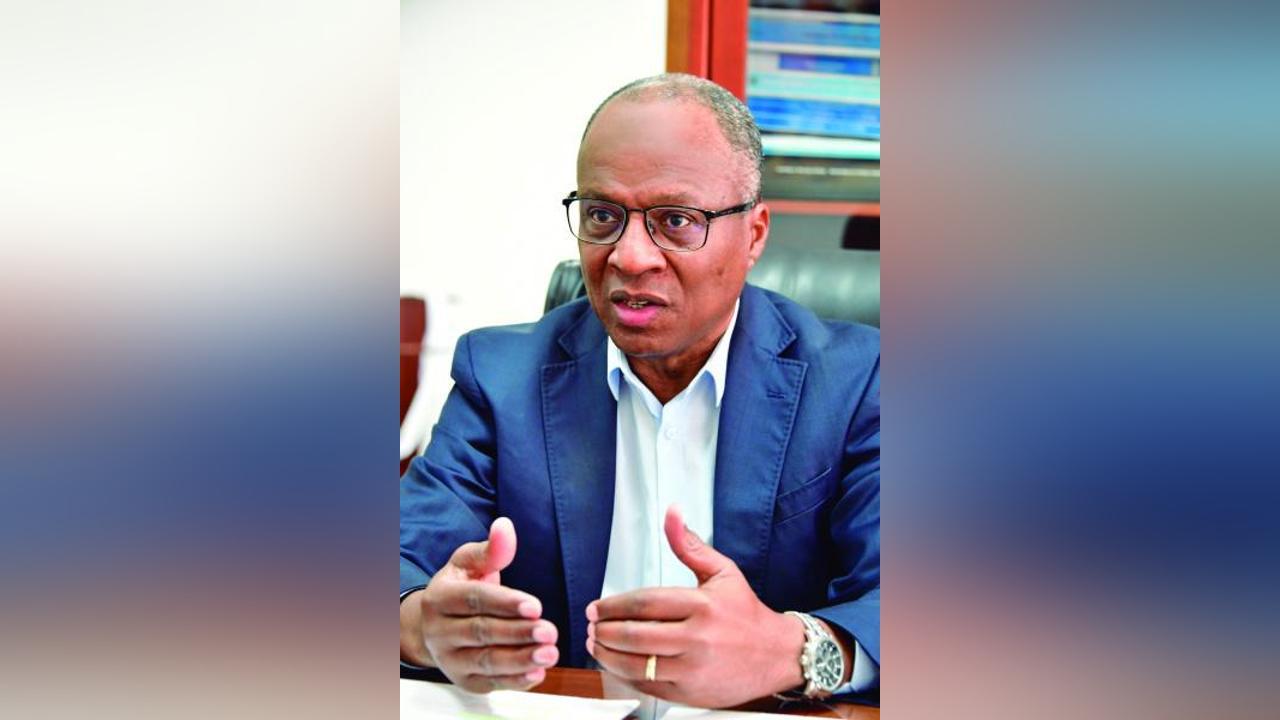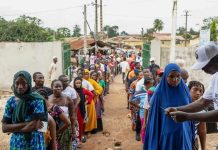By António Monteiro
Africa-Press – Cape verde. On the day that Parliament debates the State of the Nation, which marks the end of the political year, Ulisses Correia e Silva paints a picture of a country that is more resilient today after having been put to the test by the Covid-19 pandemic and the inflationary crisis caused by the war in Ukraine. The Prime Minister believes that the country has been able to face these crises, highlighting the economic growth that the country has recorded in the last two years post-pandemic. “But it is not just economic growth. It is economic growth with a reduction in unemployment, a reduction in the poverty rate, accompanied by inclusive and active policies of employability and inclusion and social protection, which shows that we are able to face difficult situations; we have managed to recover, we are relaunching the economy and there is a positive feeling of confidence, not only externally, but also within Cape Verde”, he highlights. The Chief Executive says he expects this State of the Nation debate to be clarifying, with less friction and with the presentation of political alternatives by the opposition.
Mr. Prime Minister, what do you expect from this debate on the state of the nation?
Well, I hope it will be a clarifying debate. Parliamentary debates have been very contentious and have presented few alternatives or policies. Those in opposition have the role of not only criticizing, but also presenting themselves as an alternative to the government. This has not happened in parliamentary debates, and I hope that this debate on the state of the nation will be a meaningful one, not only regarding the country’s situation, but also regarding policies, strategies and what the future holds. Let’s see if we can achieve a different debate this time.
Otherwise it will be déjà vu.
Exactly, and it is not the government’s fault. We have always been holding debates to highlight the country’s achievements, policies and development strategies, and the contexts that have been affecting the country and the entire world, but always with a positive perspective of creating dynamics that can boost the country’s development process, even in difficult situations, such as the one we have experienced in recent years.
What country will we have in July 2024, that is, at the end of this political year?
We have a more resilient country that has been put to the test. The Covid-19 pandemic did not happen in the last century. It happened in 2020, with impacts in 2021 and 2022. It was the worst economic, social, health and humanitarian crisis since the Second World War. This is true for the rest of the world and for Cape Verde, particularly for the least developed countries. Then, in 2022, with the inflationary crisis caused by the war in Ukraine, it ended up creating very serious conditions. But Cape Verde knew how to face these crises, through assertive government policies: we avoided the collapse of the health system, first of all, saving lives. Then we protected people, income, jobs, protected companies and achieved a good recovery. A country that suffered an economic contraction of 20.08% in 2020 and recovered in 2021 and 2022, adding up that recovery to more than 24%. Therefore, in two years, we more than overcame the contraction. This is worth noting. Internationally, it is recognised as a great economic performance for Cape Verde. But it is not just economic growth. It is economic growth with a reduction in unemployment, a reduction in the poverty rate, accompanied by inclusive and active policies for employability, inclusion and social protection, which demonstrates that, firstly: we have managed to face difficult situations; we have managed to recover, we are relaunching the economy and there is a positive feeling of confidence, not only externally, but also within Cape Verde, regarding our possibilities. I would like to highlight this, because it is important for the next phases. The country has been put to the test, it has managed to recover, relaunch and has the conditions to accelerate its development process.
With what you have just said, one gets the impression that you are a better crisis manager than a normal manager.
Crises must be managed and managed assertively. And we managed them. But it was not just about managing crises. It is about managing crises so that we emerge more resilient and in a better position to continue the development process. At the same time that we set up the entire system to protect people, companies, employment, income and health, we were investing in education, we continued to invest in infrastructure, in urban and environmental requalification, in improving infrastructure such as ports, namely the construction of the Port of Maio, in infrastructure to support tourism such as the Mindelo Cruise Terminal. Therefore, a set of actions that were developed as we were protecting the country from crises. And this is, in fact, worth considering, because we were not only able to recover and relaunch, but also to make the country in a position to continue its development process.
Regarding public safety, which is also a good barometer for the well-being of a nation, will we have a safer country in 2024?
We have a country with fewer criminal incidents, the data shows that. We have a country with public safety challenges, but we are overcoming them. I am talking particularly about the area where we have had the highest levels of incidents, which is Praia, where there has been a decrease and there has also been a reduction in people’s perception of insecurity. Just look at the latest INE report on the issue of insecurity. This is the result of work, of police action, of judicial action, namely the issue of eliminating or reducing impunity. It is also the result of work in social and community prevention. We have many associations working, doing the ant work, promoting the inclusion of young people, working to prevent their neighborhoods from becoming places where juvenile delinquency proliferates. We have churches and families working… So, it is not just the government, police action and judicial action. It is society that is committed to significantly reducing the level of criminal activity and the level of perception so that people feel that they are in a safe country. And I reaffirm that Cape Verde is a safe country, our islands are safe, but we have situations of crime and violence, which are associated with certain phenomena: alcohol, drugs and situations of urban violence, particularly involving young people. So, it is within this perspective that we are also working, including on the issue of weapons. We approved a new law on weapons and ammunition, precisely to be much stricter and stronger in controlling the possible entry of weapons and ammunition into the country and their use, including those that previously had a very low level of punishment. The issue of boka-bedju, a homemade weapon, which today has a much stronger criminal framework. All of this action is aimed at ensuring that, by working on all these aspects, in prevention, in social, community and family action, and working particularly with young people, and working towards our cities, particularly here in Praia, being spaces that create a sense of order, from the issue of petty violence that later leads to more serious violence, the issue of compliance with opening hours for establishments, particularly at night, the issue of establishments that sell alcoholic beverages and ensuring that they do so within the hours and conditions permitted by the regulations, the issue of noise, the issue of gatherings that sometimes last until the early hours of the morning, which proliferate quite a bit in the neighbourhoods. These are factors of municipal authority, which are sometimes not taken into account, but which create fertile ground for daily violence, and this daily experience then turns into environments favourable to crime. Therefore, we have to act, and we have been acting within all of these areas,But municipalities have to do much more. I am talking particularly here in Praia, regarding the issue of creating a more relaxed environment, a healthier environment for people to live together and a sense of compliance with norms and rules.
Moving on to the economy. In which areas does the Government believe it has made the greatest progress?
The Government has had very proactive economic growth policies, thus creating a favourable environment to attract both domestic and foreign investment, to promote entrepreneurial activity in the country and foster productive activity. This is an important factor. The data shows that before the pandemic we had been experiencing good growth, but with the pandemic this has slowed down a lot. We recovered after the pandemic and there is a positive trend from now on. Then there is all the policy related to what we have to deliver to the people – employment, income, elimination of extreme poverty, reduction of absolute poverty. And we have also had assertive policies and results that are also positive and encouraging in relation to the outlook for future trends. We have been reducing unemployment, but we are not yet at the level we want, because by 2026 we want to reach less than 10% unemployment. We are not yet at the poverty rate we want, because we want to reach around 20% of absolute poverty by 2026 and drastically reduce extreme poverty to zero, with very assertive policies, always with the aim of improving people’s quality of life. Therefore, within this package of responses that affect people, there are aspects that I would say are positive, but which are still challenges for the future and with the aim of improving even further. One of the factors that we have and that still acts as a major constraint is transport: we have been improving, despite a lot of action in the transport sector. When we look at the starting point of 2016, and we look at it today, we see that there is progress. In 2016, we were in total collapse, particularly in air transport. Today we have managed to stabilise, recover, get TACV up and running, to operate international flights, and restore conditions for inter-island air transport, but we are not yet in an optimal period or process, but we are thinking that in the near future we will be able to significantly improve, namely inter-island transport, which is still a major challenge.
What do you recognize that you have not achieved yet during this term?
The mandate continues until 2026. What I am saying is that the most pressing challenge we have at the moment is, after stabilising the transport system, to ensure that it can be a driver of development, particularly local development, with more inter-island connections and greater predictability. I am talking about maritime transport, air transport and greater external connectivity, so that the transport sector ceases to be a constraint on the country’s local, regional and national development process. This has, in fact, been the major constraint that we want to overcome.
Is there a lack of political will to definitively resolve the problem of inter-island sea and air links?
The problem of islands in itself is a problem that poses major challenges to the transport system. Furthermore, we are talking about islands in a non-harmonized way. Not all of them have the same population and we are talking about islands in a country with a low-middle income level. This means that the cost of transport is relatively high, when it comes to short distances, on islands with small populations, small traffic and relatively low income, the challenge is even greater. Therefore, there must be public policies and that is what we have been doing – not only limiting the price level, cross-subsidizing the most profitable and least profitable islands, because otherwise everything would skyrocket, but also granting public service concessions in the case of maritime transport. We define the rules, the routes and the frequencies. We are now going to introduce another measure to create special regimes for islands that we call small markets. This is the case of São Nicolau, Maio and Brava. These are islands with small populations and still little economic activity, where it is difficult to make a profitable flight, for example, without subsidies. So, we are going to introduce a relatively strong level of subsidies, which could be between 40% and 50%. I am talking about inter-island air transport, to and from the islands of São Nicolau and Maio. In the case of Brava, it will be maritime transport. In the sense that with significantly cheaper transport we will be able to have more flows, more people travelling to these islands. Whether they are nationals, foreigners, tourists or members of our diaspora. And with more people being transported, we will be able to make the most of the use of both planes and boats and, at the same time, develop these islands and make them an attraction for tourism, both domestic and foreign. This is one of the measures that will soon come into force to complement the supply in terms of transport.
The issue of inter-island connections is putting the government under great pressure. Do you think that you will be able to resolve this issue definitively by the end of your term?
We are going to make significant leaps. Note that today we are already operating with more aircraft in terms of inter-island transport. We used to have one aircraft, then it went up to two and today we have three. Sometimes there are operational problems – maintenance, breakdowns, which create problems after we have enough to continue operating normally. Therefore, a 50-seater Dash 8 was acquired , the Air Senegal ATR is being repaired to be put back into operation and we have Global Aviation which is providing the service. Our expectation is that we can increase the offer of flights even further, because there has also been an increase in demand, particularly demand related to domestic tourism, which causes even more pressure. So, this is a good sign. This increase in demand and we have to adjust the offer of airlines, in this case TACV which is operating inter-island flights, to be able to meet this demand and further increase the capacity for connections. And our market is not a closed market, it is not a monopoly, other companies that are interested in entering the Cape Verdean market, which is growing at least because of tourism, as long as they comply with the conditions established by the regulator, will also be duly analyzed.
Let us now move on to another chapter that also marked the political year: the relationship between the President of the Republic and the Prime Minister. Two examples are the reception of President Zelensky at Sal by the Prime Minister and the President’s veto of the proposal to appoint Felisberto Vieira as ambassador to Cuba. How do you explain these disagreements and divergences in foreign policy, giving the impression that the country speaks with two voices?
There are no disagreements, nor does the country speak with two voices regarding foreign policy. Foreign policy is the responsibility of the government, which defines and implements it. The President of the Republic has his powers, namely appointing ambassadors on the proposal of the Government. Another thing is what the President of the Republic says, or speaks, which cannot be prevented from speaking and saying things. When he says something, if the Government does not agree, the Government also speaks out. And we have been avoiding making public statements on issues that have to do with institutional relations with the President of the Republic, precisely to avoid creating the impression that there are disagreements, that there are extreme positions on one side or the other. For example, the factual issue regarding the short visit of the President of Ukraine. This was duly explained to the President of the Republic. There was a direct invitation to the Prime Minister by President Zelensky to receive him at Sal Airport. I think that with the explanations given, this has been duly clarified. The way in which the President of the Republic subsequently expressed himself on this matter is his responsibility, not mine. Regarding what was called a proposal, it was not a proposal. A proposal is when the government, after consulting the President of the Republic, formalizes the proposal to appoint an ambassador. What happened and is public knowledge, because the President has already spoken out on this, is that there was a consultation, with a view to being able to, if there was an agreement, appoint Felisberto Vieira as ambassador to Cuba. This consultation later had no consequences because it was not received favourably and the President explained his criteria and we did not turn this into an element of political combat or a conflict of positions on foreign policy issues. I believe that this matter has also been duly clarified with regard to the position of the Government and the President of the Republic.
Was there still a government intention to move forward with Felisberto Vieira as Chargé d’Affaires in Havana, as this did not require presidential approval?
Chargé d’Affaires, no. Note that the consultation was in the sense that Felisberto Vieira should perform the role of ambassador and not that of Chargé d’Affaires.
Social portrait of the nation. Psychologist Jacob Vicente and community leader Gerson Pereira, in Praia, and Salvador Mascarenhas, from the Sokols movement, paint a social portrait of a country that is still very poor and depressed, where many families have no food at home. How is the government dealing with the issues of social inequality and poverty?
First, it is people’s opinion. It is not a law, it is not a determination, and there is no proof that this is the majority position of Cape Verdeans. Just as these people have this position, there are people with different positions. I am not an analyst to analyze these opinions because a hundred other different positions may appear. I am not going to make this analysis, based on what people’s positions are, regarding how they understand and how they interpret things. For example, to say that Cape Verde is a depressed country, we have to prove how they reached that conclusion. Cape Verde still has levels of poverty, but the important thing is that we have been reducing poverty, particularly extreme poverty. These are processes, not decrees that are imposed so that poverty can be eliminated the next day. Then we have to take into account that we also had this path that ended up creating more problems in relation to poverty, both the inflationary crisis and the crisis of the Covid-19 pandemic. The path we are now taking is one of recovery so that we can actually eliminate extreme poverty, and I hope we can be in tune to do so. That is why we have stated that eliminating extreme poverty should be a national goal. Because it does not depend solely on government action. The government leads, defines policies, implements them, but it also implements them with society and with social participation, from the individual, the family, and civil society organizations, so that we can converge on the need to change this situation. Public policies have been very assertive. Note that the social protection coverage rate has increased significantly in Cape Verde today. The social security coverage rate has increased. The number of small businesses that were previously almost all informal are becoming formalized and ensuring their protection and registration with social security, which creates current and future protection for people’s income, particularly in situations of some difficulty. We have had active employment and employability policy programs that have an impact on employment. Are we in the optimal position we want? We are not, we are in a process that could go that way. Instead of people seeing this side, it is like the theory of the glass half full or half empty. There are people who always see the negative side and ignore any positive side. Then they create dynamics to convey the idea of depression, because they want to take the understanding to the negative side. They do not see that there are dynamics that can change and that are changing the situation. But I am on the more positive side, because that is what then positively contaminates what is the will, the energy of people to be able to also be actors of transformations. Today, when you find many young people entering entrepreneurship programs, it is because they believe, because there are systems that allow them to believe:from training, qualification, financing and favorable taxation. Many of these young people are creating conditions that allow them to solve their life problems, create jobs for others and also boost part of the country’s economic activity. These dynamics should be driven forward in order to be encouraged and motivated so that we can make these changes. Poverty exists, Cape Verde is not a rich country, it is a country that has been dealing with poverty for centuries, but the important thing is that we are in a process that tends to significantly reduce the level of poverty.
In an opinion piece published in a local newspaper, a political analyst said that Cape Verde is a country with little social sensitivity, where one in three people lives in poverty and food shortages. What data do you have to counter this opinion?
I am not going to do a counter-analysis of what the analysts say. What they say is their responsibility. The data I have is that poverty has been reducing, the social protection coverage rate has increased significantly, we have doubled the level of social transfers directed to families for education, health, energy and water costs. Cape Verde is one of the African countries with the highest level of social protection. This impacts people’s lives, yes. It would be much worse if these policies did not exist. The question is whether we are still in a position to guarantee that all Cape Verdean families, that all people are out of poverty. We are not at that point. We are in a process, a trend that could lead us there, to significantly reducing poverty. We have problems with food insecurity, cyclically. We were better until 2019. Then we had the crises that cannot be ignored. They hit the level of social security hard. We are recovering, regardless of the severe droughts that people do not account for, it was not just any drought. It was a severe drought that caused an abrupt drop in agri-food production, which created problems in the lives of several rural families. It also caused some rural exodus; the most important thing is to see whether the policies that are being implemented will allow us to improve the level of food security. I say yes. We have placed emphasis on the issue of water because there is no agriculture without water and there is no production of agri-food products to meet any need for food security without agricultural processing activities. We are focusing on that. The results do not happen overnight either. But that is the way forward. I am talking about sanitation, the use of waste water; we are investing heavily in the efficiency of water management, with drip irrigation, where the State subsidizes 50% of the costs. Now we are introducing another measure regarding access to greenhouses with State subsidies. It is combating what nature has given us as a dry, arid country exposed to climate change. It is with these measures, now in a sustainable way, that we will produce, in the long term, the improvement of these situations that some portray as inevitable.
In recent years, there have been situations of blockages in the municipal councils of Praia and São Vicente. Why is the government not intervening?
Well, management problems, starting with Praia. Failure to comply with laws and regulations is a legal issue. It is a matter for the courts, including irregularities in financial and investment management. It is a matter for the courts, so the Government will not intervene in competition. What the Government has done and has been doing in all municipalities is inspection. Inspections were carried out both at Praia City Council and at other councils, so that we can also exercise our authority to verify compliance with legal conditions. I am talking about the financial inspection by the General Inspectorate of Finance and the inspection to verify legality by the Ministry of Territorial Cohesion. So, these have been the interventions. We hope that the courts can act in relation to verifying and confirming serious situations in the functioning of Praia City Council in particular.
What will the start of the next academic year be like if the government has not yet reached an agreement with the unions regarding the implementation of the new PCFR?
The government does not have a problem with teachers. Teachers are represented by unions and there are ongoing talks and negotiations. The Career, Function and Remuneration Plan (PCFR) presents clear advantages in terms of remuneration compared to the current plan regarding the status of teaching staff, both for primary and secondary school teachers and for teachers without a degree: there is a significant change in the salary amount. For example, for teachers with a degree in primary and secondary education, in the first and second cycles, if I remember correctly, it jumped from 78,678 escudos to 91,000 escudos. That was at the starting point. Then there is the whole process of evolution. In relation to teachers without a degree, I think it more than doubled: it went from 23,209 escudos to 55,000 escudos. Therefore, there is a proposal on the table, which is the implementation of the Career, Function and Remuneration Plan with advantages for teachers. Now, the position of the unions: some are more rigid than others. These positions must be taken into account, but this must be a convergence of positions. The State of Cape Verde, the country and the State Budget cannot accommodate any number that the union might want to impose. Because then how are we going to pay for it? Are we going to increase taxes to increase salaries? Then, when the increase in the value of teachers’ salaries is so unbalanced, it will also unbalance that of doctors, it will unbalance that of magistrates and other functions that are important for the functioning of the State, because we are inflating everything. That is why there has to be reasonableness. The leap forward that is being made with the application of the PCFR is already very important, in addition to the regularization of pending issues, which are practically all resolved, except for one part that has to do with the subsidy for non-reduction of work hours, which is being finalized, a huge effort of millions of contos to regularize situations that have existed since 2008. This has to be put on the table later to understand that there is no State, no country, no State budget that does not have limits. And if this limit is drastically exceeded, what situations will countries then face? A drastic increase in taxes. One has to ask Cape Verdeans if they also want to increase taxes because of unusual demands or an increase in debt. And the increase in debt is a future tax that everyone will have to pay. Therefore, it is within this framework that we have to try to be reasonable so that the education system can function, so that teachers can work, so that students, who are the reason for the existence of the education system and the educational community, are then duly benefited by the education system.
What is a reasonable solution to these claims, taking into account the start of the next academic year?
I hope that the next school year will run normally, because there is a responsibility to the students, there is a responsibility to the parents and guardians and there is a responsibility of the teachers themselves. The unions have their own way of operating, they have their own way of making demands, but they must be reasonable regarding the proposals that are on the table.
expressodasilhas
For More News And Analysis About Cape verde Follow Africa-Press






